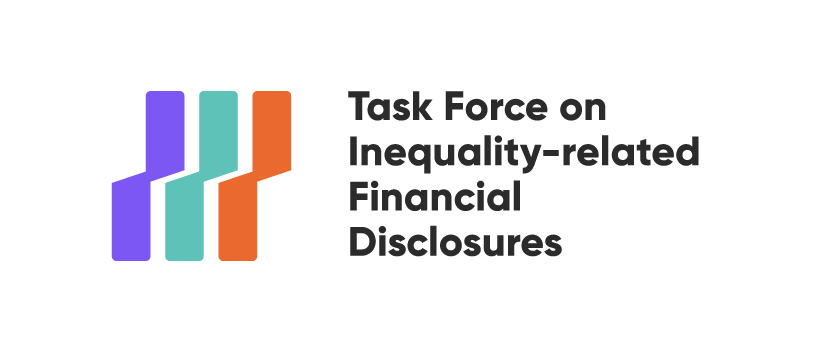Proposed TIFD Architecture
In consultation with TIFD Allies and other interested stakeholders, the TIFD Interim Secretariat developed a provisional plan for the TIFD Architecture, as depicted in the image below. This plan was presented at the July 2022 Global Meeting and remains open for input. To provide feedback on the proposed architecture, send the Interim Secretariat a note at: info@thetifd.org.
The proposed architecture consists of the following components:
The components of the proposed TIFD architecture are:
Thematic Working Groups: Established over time, working groups specializing in particular themes of socio-economic inequality (labor, tax justice, gender, climate justice, Global North-Global South, etc.) will first map existing disclosure frameworks on that topic, synthesize them, and identify gaps. With that foundation, they will identify metrics, targets, and thresholds and develop guidance for disclosure on that topic. The Thematic Working Groups will be established in a staged process, beginning with topics around which there is general consensus, such as labor rights, and tax justice.
Technical Working Group: Technical Working Groups will be established. Key mandates for the Technical Working Group(s) include: 1) developing definitions, protocols, and methods for the work of the Thematic Working Groups (see above); 2) formulating an approach to ensuring interoperability of TIFD with other frameworks. 3) contributing to governance matters, including management of a grievance mechanism.
Knowledge Council: A Knowledge Council will build upon existing scholarship and civil society reports to close gaps on topics pertinent to TIFD, such as: At what point does inequality become a systemic risk? What private sector activities contribute to inequality and by how much? What are the components of social risk that constitute the systemic risk in inequality?
Interim Secretariat/Secretariat: The Interim Secretariat is stewarding the co-creation process of TIFD. By early 2024 we expect to transition to a permanent secretariat based on the parameters developed in TIFD’s inclusive co-creation process. While the function of the secretariat is referred to as “permanent,” it will include provisions for rotating members, as well as periodic performance reviews and improvements.
Advisory Council: An Advisory Council will be established to provide high level input and oversight, and ensure that TIFD is well positioned globally to have influence with standard setters, regulators, and policy makers.
TIFD Allies: TIFD Allies form the backbone of TIFD. Allies contribute input and guidance that helps to inform the Working Groups, Ccouncils, and Secretariat. Furthermore, allyship is a form of endorsement that supports the expansion of the TIFD community and co-creation process.
Regional Hubs: Regional Hubs will help to build out the coalition broadly across regions via a “hub-and-spoke” approach that leverages networking effects, identifies regional nuances relating to inequality, and engages with policy makers and regulators on a jurisdiction- by- jurisdiction basis.
Each of these Working Groups / Councils will include representation of diverse stakeholders, including civil society.

